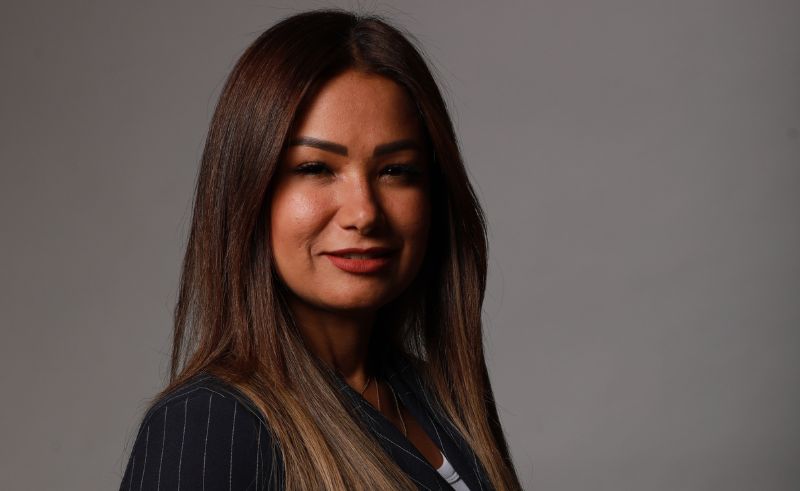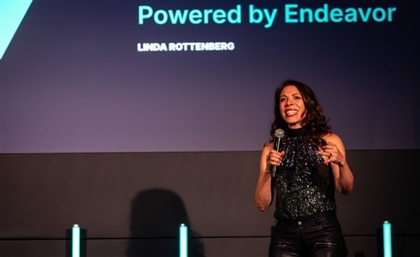Amal Dokhan: On the Potential of Regional Female Entrepreneurship
Amal Dokhan, Managing Partner at 500 Global in MENA, discusses how female entrepreneurs and investors can transform the startup ecosystem in the MENA region.

A name that perhaps needs no introduction, Amal Dokhan is a leading figure in the world of venture capital and private equity in the Middle East. As a Managing Partner at 500 Global in MENA, one of the world’s most active venture capital firms, Dokhan is known for empowering the next generation of entrepreneurs, and promoting inclusive representation for women founders and investors in the region.
With more than 15 years of industry experience, Dokhan embarked on her journey in the region’s startup ecosystem when she joined the King Abdullah University of Science and Technology (KAUST). There, she ascended to the position of Manager of Learning and Design at the Entrepreneurship Center, where she co-designed and co-led the TAQADAM accelerator program and Corporate Innovation programs, working with deep tech companies to support them in starting and scaling their businesses.
“I think something hit me at that time,” she tells StartupScene. “Everything that I’ve done in life and all the careers I’ve had, came together to create something meaningful, which is if you’re able to unlock possibilities by giving a platform, that is one big thing you can do for entrepreneurs.”
Today, at 500 Global, she spearheads the Sanabil 500 MENA seed accelerator program, which offers a 12-week program and invests in pre-seed and seed-stage companies in the Middle East and North Africa. Under her leadership, the fund has invested in more than 100 early-stage companies in the region, with more than 50% of the recent batch consisting of female-founded startups.
NORMALIZING DEALFLOW
A common study repeated each year is that female founders of VC-backed companies only raise 2% of the venture capital invested annually, according to Pitchbook.
In the Middle East, it is no different. Out of the 583 startups that raised funding in 2023, only 52 were founded by women, according to Wamda. They collectively raised $19 million in 2023 compared to $52 million in 2022, a staggering 63% drop.
While these statistics may be worrying, they also demonstrate the small pool of female entrepreneurs in the region. Less than 5% of businesses are women-led in MENA compared to the global average 26%, according to the United Nations Industrial Development Organization (UNIDO). This is one of the largest entrepreneurial disparities between men and women in the world.
“We need to see more female founders, so we can reach a stage of normalizing the dealflow,” says Dokhan. “Because at the moment, it’s actually still rare to find tech-female founders.”
She gives the example of startups in a cohort, which usually have more male-founded companies. “If we hypothetically see 100 male-led companies every year, compared to five or ten women, the pool naturally becomes narrower,” she says. “So, we need to increase that number to start seeing more intake and investments by VCs. I know many women founders are building out there, but most founders I spoke to wait until they have solid offerings to go to VCs.”
To help narrow the gap, Dokhan is constantly on the lookout for female entrepreneurs. She seeks them out and often encourages them to join the accelerator program, especially if she sees potential in their business, to help promote inclusive growth in the region’s startup ecosystem.
BECOMING INVESTMENT READY
Despite having fewer female entrepreneurs in the region, women also have a role to play in increasing their chance of getting funded.
“I do feel that we as women aspire for perfection, and I am guilty of that, but you learn with time how to calibrate that depending on the situation,” she says. “Starting a business is usually full of gaps, flaws and iterations, it’s probably not up to the level that the founder wants to bring it to the market. But I think being in venture is all about bringing incomplete, imperfect products to really get it going and experiment and pilot until you reach product market fit.”
Changing mindsets about the readiness of fundraising seems to be key for female founders. While any change takes time, Dokhan believes that having a female network of entrepreneurs, or simply seeing other founders launch their own businesses, will break some of these invisible barriers for women. “I do believe in the power of showing role models, it helps unlock potential,” she says.
It goes without saying that founders must also be prepared when fundraising. This means knowing the market, the startup’s financials, and selecting the right team members who can add value to the business. Speaking with others who have fundraised also goes a long way in being investment ready. “At the end of the day, an investor is also one of your customers,” Dokhan says. “If you don’t do your homework, if you don’t understand who they are, what they are like, what they do and how they handle their businesses, then it can be difficult to get their attention.”
CHOOSING INVESTORS
While fundraising may be all about the money, founders must also choose their investors carefully. Having the right investor onboard is crucial to a startup’s success. Besides having a good track record and knowing the industry, investors must also be able to work effectively with founders and team members. Investors are people at the end of the day, and having a good relationship with them can propel the startup to new heights.
It is for this reason that some female founders tend to look for female angel investors when fundraising, particularly since the VC space is mostly male-dominated. According to UNIDO, the venture industry is 92% male, which could impact female entrepreneurs seeking business funding.
Yet, seeking only female investors or female angels may not be a good strategy in the long term, as it can make it harder to raise additional funds in the future. In a study by INSEAD, it found that female-founded firms backed by female investors in their first funding round were two times less likely to raise further investment compared to those backed by male investors.
“If you’re only able to raise with angels in general, I’m going to question why you weren't able to get institutional investors,” says Dokhan. “Unless your strategy is to actually go and fundraise with angels until you get to a certain traction, then raise at a proper valuation and numbers. If you have the right traction, VCs will notice.”
She advises founders to expand their investor network and approach as many investors as they can to find the right fit. “There are some lucky ones who spoke to four or five investors, and immediately received funding, but those are outliers,” she says. “So, widen your pool of investors you talk to, and track your progress and feedback.”
SILVER LINING
The investment landscape may still be impacted by macroeconomic challenges today, but the Middle East remains an attractive region for investors.
According to a recent Magnitt report, the Middle East saw the smallest decline among emerging venture markets, with only an 18% dip in funding in the first half of 2024. The number of investors in the region has also increased by 30%, reaching 262. These developments present a unique opportunity for entrepreneurs and female founders, particularly in Saudi Arabia, where the country ranked number one in funding, raising over $1 billion in 2023, according to Magnitt.
“When there is more dry powder in the market, more risks can be taken by VCs,” Dokhan explains. “All the biases will begin to dissolve and disappear over time as more diverse stories emerge and get published in the market. It’s not going to happen overnight, but investors can take risks and look at different types of businesses. So, founders today have a good chance to actually make an impact.”






















